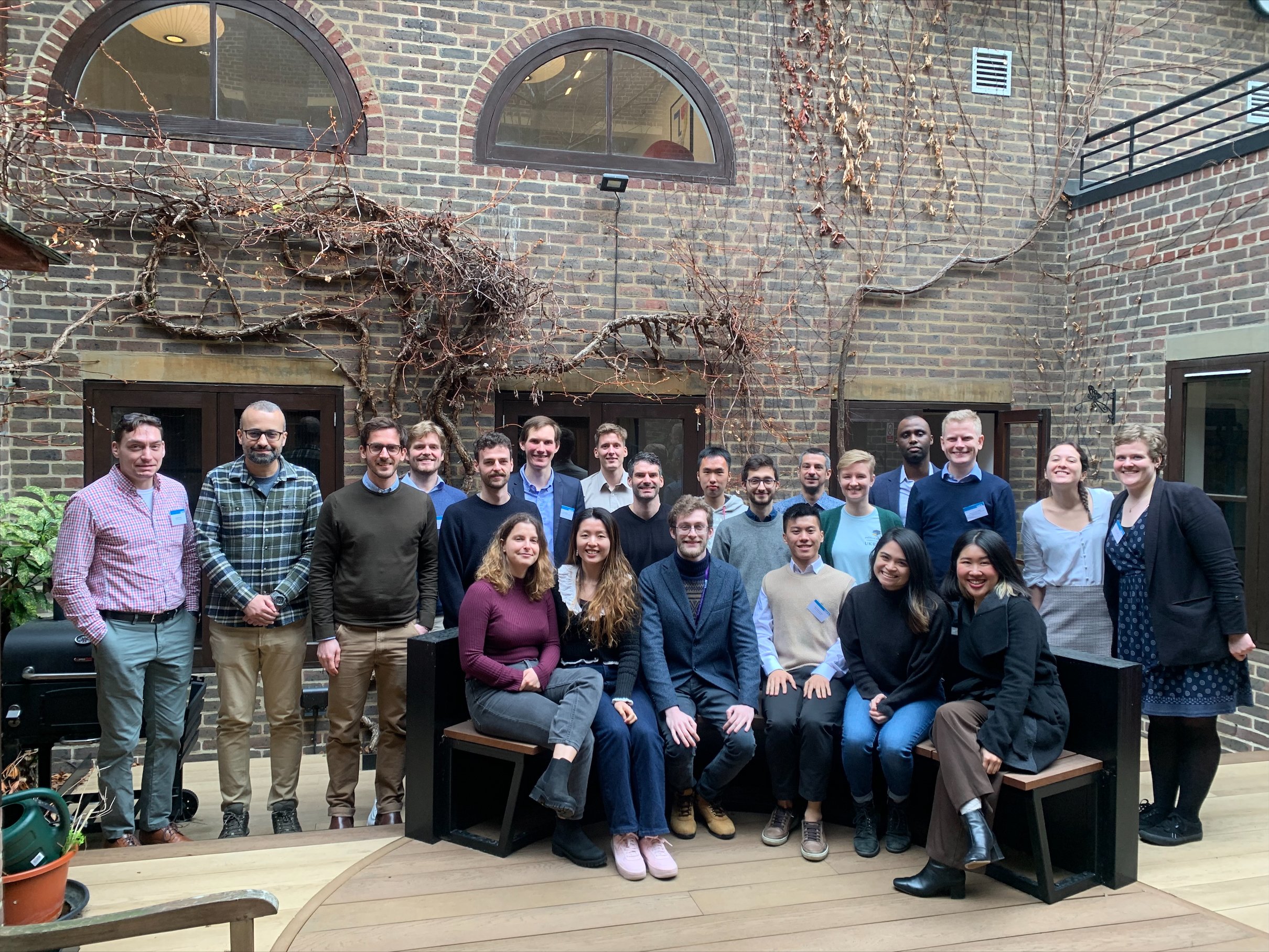The 5th Conflict & Change PhD Workshop was the most international to date. Due to a room shortage on the UCL campus, we had to find a different location off campus. In total, we hosted seven panels over the course of two days, featuring presentations by PhD researchers from more than 15 different institutions in the UK, Europe, and North America. Participants came from the London School of Economics and Political Science, University of Essex, Harvard University, University of Oxford, Cornell University, European University Institute, Humboldt University Berlin, and the University of Oslo among others. UCL was represented with participants from different departments and institutes, furthering the cluster’s outreach beyond the Department of Political Science.
To kick off the workshop on 20th February, we had the great privilege to welcome Professor Anita Gohdes from Hertie School of Governance in Berlin for this year’s keynote. The talk “Repression in the Digital Age - Surveillance, Censorship, and the Dynamics of State Violence” discussed her current book project, providing food for thought and touching upon many of the topics our participants would be covering during their own presentations at the workshop.
Prof. Anita Gohdes and Prof. Neil Mitchell subsequently provided valuable feedback for the participants who presented on the first panel. The panel on “Conflict in the Digital Sphere and its Repercussions” introduced projects on transnational repression, the effects of protest on media discourse, an investigation of the ownership structure of telecommunications companies as well as a project looking at fake news labelling as a form of digital repression.
The second panel turned to ethnic conflict and the conceptualisation and investigation of (national) identities in conflict. The four presentations on the second panel benefitted greatly from the discussants’ expertise in this area. Dr. Carl Müller-Crepon and Dr. Janina Beiser-McGrath, who joined the workshop from the London School of Economics and Royal Holloway University of London, discussed papers on the national identity in Donbas, a Lacanian approach to conflict studies, weather shocks and its effect on ethnic groups with different power statuses, and the early ethnic mobilisation and its effect on nation building in Latin America.
After the lunch break, the third panel titled “Dissecting Contentious Movements: Composition, Coercion, and Co-optation?” featured presentations on varying relations between nonviolent and violent groups in contentious movements, different forms of repression and its impact on the level of subsequent mobilisation, womens' role within movements, and the toleration of protests in authoritarian states. Dr. Rod Abouharb and Prof. Kristin Bakke provided insightful comments for the presenters.
Before all participants and members of the Conflict & Change research cluster went off to the workshop dinner, the last panel of the first day talked about “Ethnicity, Institutions, and Regime Type as Drivers of Conflict". Four participants shared their ideas on the role of autocratic personnel in peacekeeping movements, the impact of ethnic appeals on social media, the legacies of institutions and its repercussions for conflict in Thailand and the Philippines, and institutions and their effect on varying onsets of civil war. Dr. Zeynep Bulutgil and Dr. Kit Rickard provided comments.
The second workshop day started with the panel “Conflict and Post-Conflict Approaches to Governance” on different approaches to governance during and following conflict. Two presentations introduced additions to the literature on rebel governance, focusing on civilian-rebel relations and the legacies of rebel institutions for post-war regime duration. The other two presentations zoomed in on colonial elections and authoritarian legislatures and their impact on their respective regimes. Prof. Nils Metternich and Dr. Luis Schenoni closely engaged with the different projects as discussants.
The subsequent panel named "Socialisation and the Production of Violence" featured projects that zoomed in on culture, ideology, race, and religion and their role in the production of violence. The three-paper panel introduced new work investigating cases of lynching in the Postbellum US South, religious repression in China, and varying rebel group socialisation processes and their impact on conflict-related sexual violence. Dr. Kate Cronin-Furman and Dr. Kaleigh Heard provided valuable feedback.
The last panel of the workshop investigated “The Varied Story of (Obstructed) Mobilisation”. We saw three presentations on the role of proximate social networks, the spatial layout in urban spaces, and property rights in deterring or encouraging participation in conflict or the return after conflict. Prof. Phillip Ayoub and Dr. Manuel Vogt took their time to engage with these projects.
The 2023 Conflict & Change PhD Workshop was a great success! We are really grateful for the variety of projects and a great group of PhD researchers who shared their work with us in London. It was a very constructive atmosphere throughout the two days, with lots of feedback from the audience beyond the discussant comments. Members of the Conflict & Change research cluster generously shared their insights and advice. We look forward to the next iterations of the workshop. To end off with, we are really delighted about the great interest in our workshop overall, which has grown over the years, resulting in a record number of applications this year. We look forward to meeting new and old friends at the workshop next year.
This year’s workshop would not have been possible without the generous support from the Institute of Advanced Studies and the Department of Political Science & School of Public Policy at UCL. We are really grateful for their continuing support. This year’s workshop was organised by Sigrid Weber, Michael Jacobs, Yilin Su, and Finn Klebe who are all part of the Conflict & Change research cluster and PhD candidates in the department.







